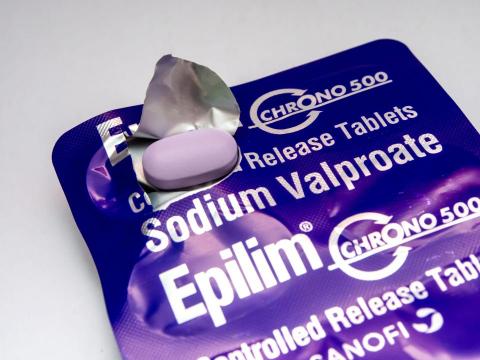
A new study has suggested that when women use Valproate during pregnancy, the odds that her baby will develop ADHD are higher.
This report that was conducted in Denmark however cannot prove that valproate causes ADHD only that there is an association between the two.
However, this study found that fetal exposure to valproate was tied to 48% higher odds of a child developing ADHD, according to the research team which was led by Jakob Christensen at Aarhus University.
The study examined 900,000 babies that were born in Denmark between 1997 and 2011. The children’s mental health was monitored from birth until they averaged 10 years of age.
Christensen's group concluded that "maternal use of valproate during pregnancy was associated with a small but significantly increased risk of ADHD in the offspring, even after adjusting for maternal psychiatric disease, maternal epilepsy," and other factors.
The findings were published online Jan. 4 in JAMA Network Open, Valproate was the only other epilepsy drug that seemed to have an effect on ADHD rates.
A group of U.S. experts made the point that most women with epilepsy are already advised to avoid valproate during pregnancy.
"This study provides yet more data highlighting risks of using valproate in women of childbearing age," said Dr. Fred Lado, who directs epilepsy care for Queens and Long Island as part of the New York City Northwell Health system.
Lado went onto to say that it’s been known for quite some time that “valproate produces birth defects in up to 10 percent of children exposed in utero." He also said that the drug “reduces the average ID [in exposed offspring] and increases the likelihood of behavioural problems”.
According to Lado this new study "adds to the already compelling list of reasons for avoiding valproate use in women of childbearing age".
In most cases women can switch to another anti-seizure medicine, However Lado did say that "in the rare cases where there is no alternative to valproate, women should be informed fully about the risks and counseled on the use of contraceptives,".
Dr. Andrew Adesman is chief of child developmental and behavioural paediatrics at the Children’s Medical Centre of New York in New Hyde Park. He stated that the new study “once again raises the concernthat the prenatal exposure to valproate puts a fetus at increased risk of ADHD as a child.”
Adesman emphasised that whilst the avoidance of valproate is the favoured option during a pregnancy, women should not panic if they have taken the drug whilst pregnant.
"It must be kept in mind that, despite the increased risk of ADHD, only about 10 percent of children exposed to valproate prenatally ended up having ADHD," Adesman said. "So, women who were treated with valproate during their pregnancy should be reassured by the fact that the chances are pretty small that their child will have ADHD as a function of valproate exposure during pregnancy."
